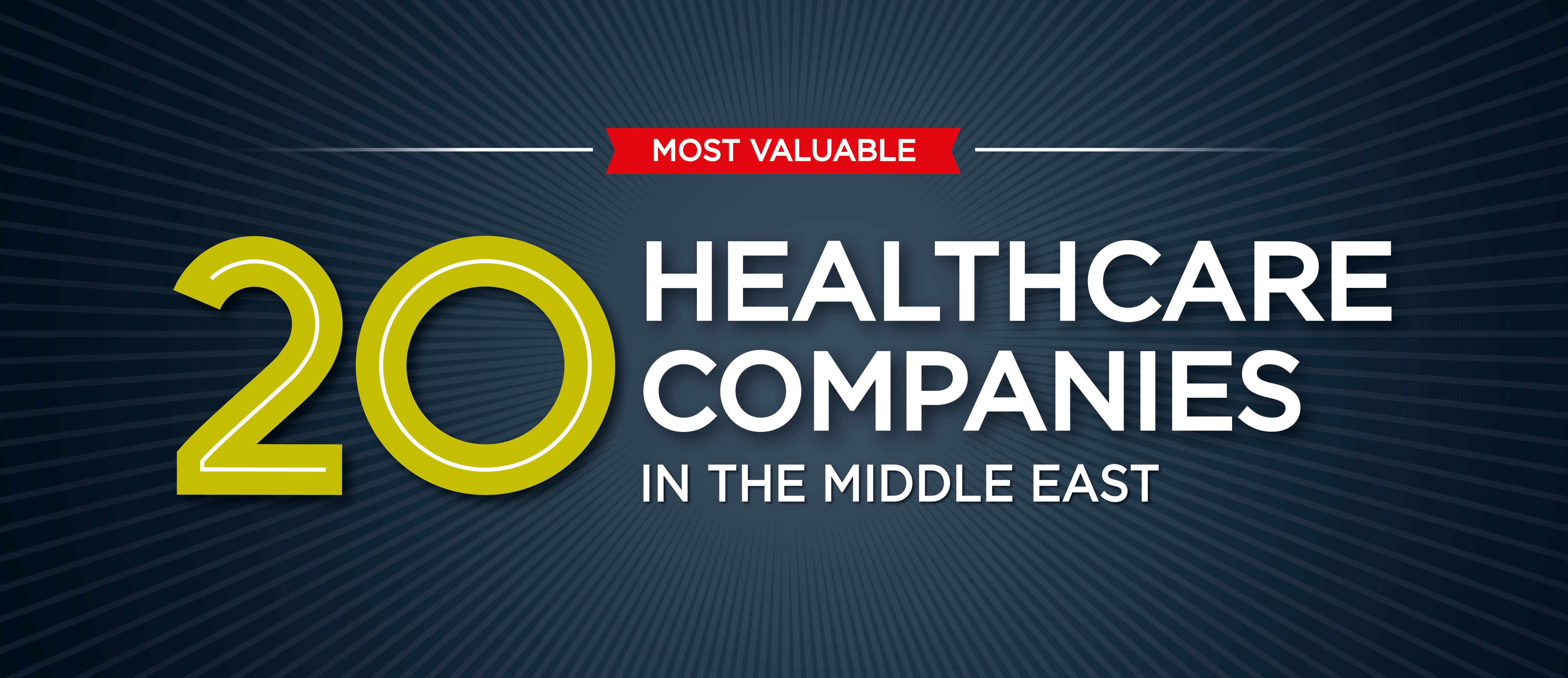

Most Valuable Healthcare Companies 2020
The healthcare industry in the Middle East has matured over the last two decades— what was once a monopoly of the government is now ripe with entrepreneurs, investment funds, and private equity players investing in the sector. A recent report by Fitch Solutions suggests that MENA’s healthcare market is projected to grow from $185.5 billion in 2019 to $243.6 billion in 2023, with an 11.7% compound annual growth rate (CAGR) at constant exchange rates.
The region is also a leading exporter of pharmaceutical products. Julphar, which is owned by the government of Ras Al Khaimah, is the largest manufacturer of insulin in the world, and Hikma Pharmaceuticals sells over 690 products globally, earning over $2 billion in revenues.
In times of uncertainty insurance provides support to individuals for any events that cause material and financial losses. Several sectors are directly impacted by insurance, including automobiles, manufacturing, real estate and travel. With several Gulf countries mandating health insurance for all employees, the insurance sector is also closely linked with healthcare and well-being.
This month we are highlighting the most valuable healthcare companies in the Middle East, with a new ranking of 20 healthcare and 20 insurance companies. We calculated the market value of all the healthcare companies from the Middle East listed on the region’s stock exchanges as of March 9, 2020.
The total market value of the 20 most valuable healthcare companies in the Middle East is $17.3 billion. Saudi Arabia is the most represented country on the list with six entries, followed by the U.A.E. and Egypt, with four entries each.
The 20 most valuable insurance companies in the region have a combined market value of $11.6 billion, with Saudi Arabia once again dominating the list with eight entries, followed by the U.A.E. with six. No Egyptian, Jordanian, Omani, Algerian or Tunisian companies made the list.
Full List

No Data













